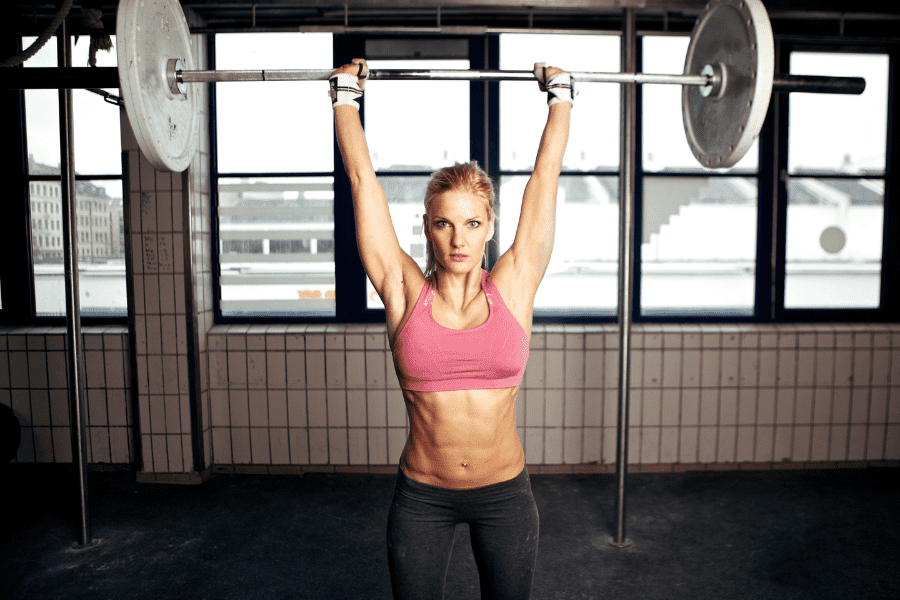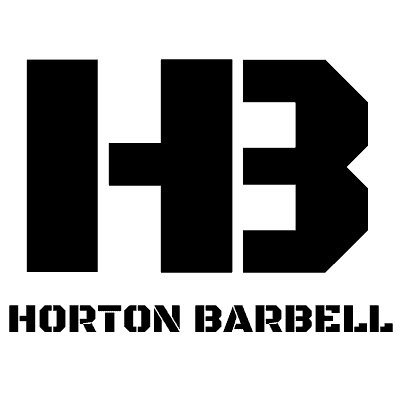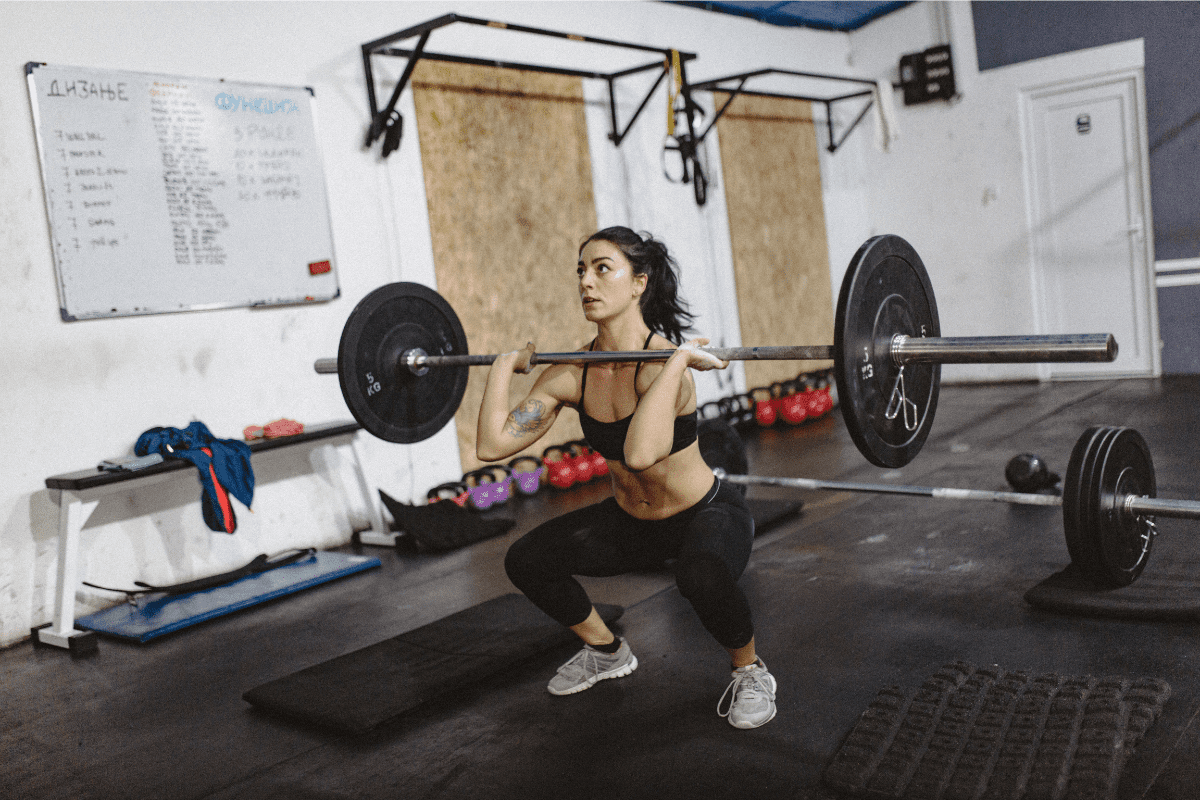Thrusters (How To, Muscles Worked, Benefits)
Thrusters are an exercise that has been made very popular by CrossFit. It’s basically a combination of a Front Squat and a Push Press. It’s a total body movement that can not only improve strength but can absolutely gas you pretty quickly.
In this guide, I’m going to teach you how to do Thrusters including important coaching points, muscles worked and a few alternatives.
How To Do Thrusters
Equipment Needed
- Barbell
- Bumper Plates (Iron Plates are technically okay too, but you’ll need to be careful putting the bar down)
Muscles Worked
- Thrusters are a total body exercise. Almost every muscle group in the body is utilized at some point during the movement.
How To
- Start with the barbell in a front rack position – the same as you would for a Front Squat.
- To get to this position you can either take the bar out of the rack or clean it from the floor.
- Now, with feet shoulder-width apart and core braced, descend down into a Front Squat.
- Once you reach full depth, explosively drive up.
- As you reach full extension with the hips, drive the bar up to an overhead position.
- Return the bar back to the starting position on the shoulders and repeat.
Coaching Points
This is a complex movement, combining the movements of two technical lifts – the Front Squat and the Push Press. If you’re not already proficient in both of those lifts I would recommend following the links to each of those individual exercises and becoming familiar with those first.
I know many CrossFit workouts prescribe a high volume of Thruster reps and encourage you to work as fast as possible. Having said that, always make sure that you’re able to maintain proper technique and keep a braced core when squatting.
Don’t let the combination of fatigue and trying to rush cause you to use poor technique as this can lead to injury.
How Many Reps?
Rep ranges are going to depend on the intent and weight used. If you’re using Thrusters as a strength builder, sets will be in the 4 to 8 range. If you’re using Thrusters as part of a metabolic circuit, sets may be in the 8 to 15 range.
As stated in the Coaching Points, make sure no matter how many reps you are doing that you’re able to maintain proper technique. Never sacrifice technique for weight (or trying to go fast).
Benefits of Thrusters
Here are three key benefits of incorporating thrusters into your strength program:
Full Body Engagement
One of the primary benefits of the Thruster is that it engages multiple major muscle groups simultaneously. The squat portion targets the quadriceps, hamstrings, glutes, and calves, while the pressing movement works the shoulders, chest, and triceps.
The core is also heavily engaged throughout the movement to stabilize the body, especially during the Overhead Press.
Functional
It teaches the body how to move and work in a coordinated fashion. This is beneficial for anyone from athletes looking to improve movements in their sport to someone wanting to be more efficient at picking up heavy objects and loading them onto a high shelf.
Caloric Burn and Cardiovascular Benefits
Because Thrusters are so intensive and utilize large portions of the body’s musculature, they can result in a significant caloric burn. The combined squat and press require a lot of energy, which can elevate your heart rate quickly.
Performing thrusters in high-repetition sets or as part of a circuit can provide both strength and cardiovascular benefits, making it an efficient exercise for those looking to improve general fitness or lose weight.
Thruster Alternatives
Need an alternative for Thrusters? Here are a couple of exercises that you may be able to use as a replacement.
Want more options? Here are my 8 favorite alternatives for Thrusters.
Wall Balls
Wall Balls are another exercise that has been made popular through CrossFit. It’s essentially the exact same movement as a Thruster except using a medicine ball instead of a barbell.
It’s also a little more beginner-friendly and technically easier. If you don’t feel comfortable with your Thruster technique, this would be my first recommendation.
Push Press

Push Presses are basically a Thruster without the Front Squat. Instead of going all the way down into a full squat, dip 4 to 6 inches and then drive the barbell overhead.

Online Strength Programs
- 1-on-1 Online Coaching
- Sports Performance Programs for Football, Basketball, Soccer & More
- Programs for Former Athletes (Legends) Who Still Want to Train Like Athletes
- Programs for Adults Who Want to Get Healthy (and look great at the beach!)
- Use Code “HB10” to Get 10% Off Today
More Links and Info
If you’d like to see more Olympic Lifting-style lifts (I know Thrusters are not an Olympic lift, but they are rather hard to categorize), then check out the Olympic Lifting section of our Exercise Library. There you’ll find dozens of Olympic lifts and Olympic lift variations, all with step-by-step instructions.

